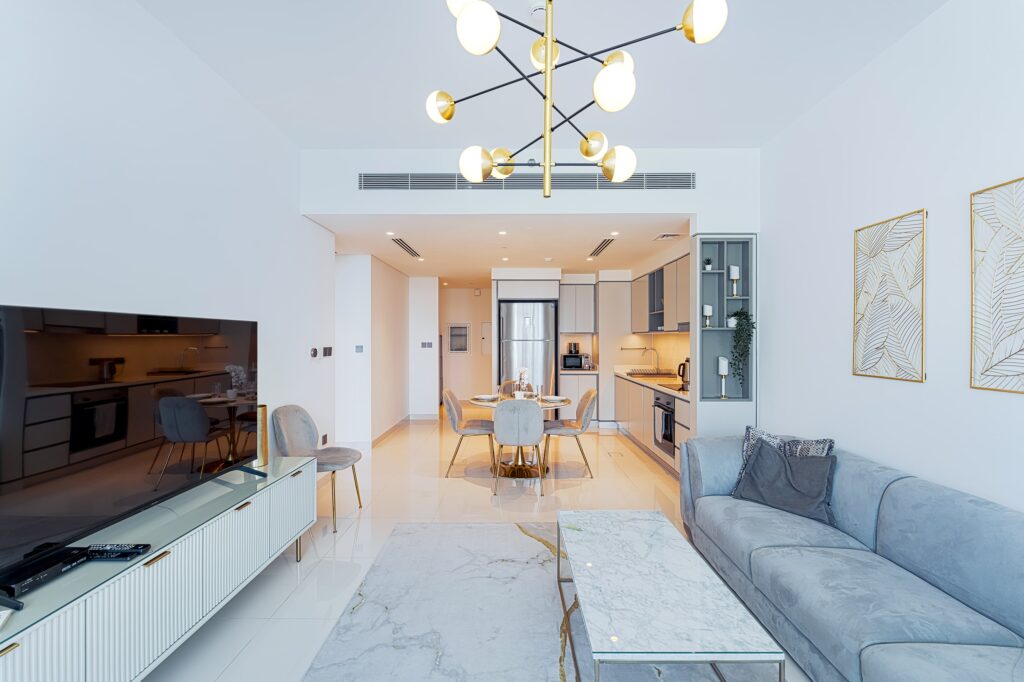Navigating the rental market in Dubai can be a challenging task, especially with the city’s dynamic property landscape. In a bustling UAE real estate market, understanding the lease agreement is crucial for both tenants and landlords. With changing regulations and market dynamics, staying informed is key to ensuring a smooth renting experience. This guide aims to provide a comprehensive knowledge for tenants navigating the lease agreement landscape in Dubai.
What is a Lease Agreement?
A lease agreement is a legally binding contract between a landlord and tenant, detailing the terms under which a property is rented. This document covers various aspects such as the duration of the lease, rent amount, payment terms, and the responsibilities of both parties. Understanding this agreement is vital to ensure a smooth and trouble-free renting experience.
Key Components of a Lease Agreement
• Duration of Tenancy
The lease agreement specifies the duration of the tenancy, which is typically one year in Dubai. However, shorter or longer terms can be negotiated based on mutual agreement.
• Rent Amount and Payment Terms
The agreement will detail the monthly rent amount, due date, and acceptable payment methods. In Dubai, rent is often paid via post-dated cheques.
• Security Deposit
A security deposit, usually equivalent to one or two months’ rent, is required by the landlord as a safeguard against potential damages or unpaid rent. The terms for the return of the deposit should be clearly stated in the lease.
• Maintenance Responsibilities
The lease should outline who is responsible for maintenance and repairs. Generally, landlords are responsible for major repairs, while tenants handle minor repairs and upkeep.
• Renewal and Termination
Terms for renewing or terminating the lease should be clearly defined. This includes the notice period required for either party to end the tenancy.
Important Terms and Clauses
• Rental Cap
Dubai’s Real Estate Regulatory Agency (RERA) has set rental caps to prevent exorbitant rent increases. The lease should adhere to these guidelines, ensuring fair rental practices.
• Cheques
Post-dated cheques are a common practice in Dubai. The lease should specify the number of cheques required (typically 1-4 for the year) and the due dates.
• Maintenance Obligations
Clarify the extent of your maintenance responsibilities. For instance, routine maintenance might be the tenant’s duty, while structural repairs fall under the landlord’s responsibility.
• Notice Periods
Notice periods for vacating the property or terminating the lease must be clearly mentioned. Typically, a 90-day notice period is standard for non-renewal of the lease.
Rights and Responsibilities of Tenants
Tenant Rights
- Right to a Habitable Home: The property must be in good living condition, meeting all safety and health standards.
- Right to Privacy: Landlords must provide notice before entering the property, except in emergencies.
- Protection from Unfair Eviction: Tenants can only be evicted for legitimate reasons, as stipulated by law.
Tenant Responsibilities
- Timely Rent Payments: Pay your rent on time according to the terms set in the lease.
- Property Maintenance: Keep the property clean and handle minor repairs.
- Adherence to Lease Terms: Abide by the rules outlined in the lease, including any regulations regarding pets, subletting, or alterations to the property.
Knowing Some Legal Terms
Legal terminology can be confusing. Here are some common terms decoded:
- “Lessor” and “Lessee”: The landlord and tenant, respectively.
- “Subletting”: Renting out the property to another person, which usually requires the landlord’s approval.
- “Force Majeure”: Unexpected events (like natural disasters) that can release parties from contractual obligations.
Navigating Rent Increases and Disputes
Rent Increases
RERA regulates rent increases to prevent unfair hikes. Tenants should familiarise themselves with the current rental index to understand permissible increases.
Handling Disputes
In case of disputes, such as disagreements over maintenance responsibilities or security deposit returns, tenants can approach the Dubai Rental Dispute Centre for resolution.
Tips for a Smooth Tenancy
- Conduct Thorough Inspections: Before signing the lease, inspect the property for any damages and document them to avoid future disputes.
- Document Everything: Keep a record of all communications with the landlord and copies of signed documents.
- Open Communication: Maintain transparent and open communication with your landlord to address issues promptly.
- Know Your Rights: Familiarise yourself with your rights under Dubai’s rental laws to protect yourself from potential abuses.
If you are in a hunt for property to rent in Dubai, understanding the lease agreement is crucial for a smooth rental experience. By familiarising yourself with the key components, terms, and your rights and responsibilities, you can navigate the rental market with confidence. Always stay informed, read your lease thoroughly, and don’t hesitate to seek professional advice if needed.
At Strada, we specialise in providing expert advice and personalised services to make your renting experience in Dubai seamless. Get in touch with us today and discover your dream home!







